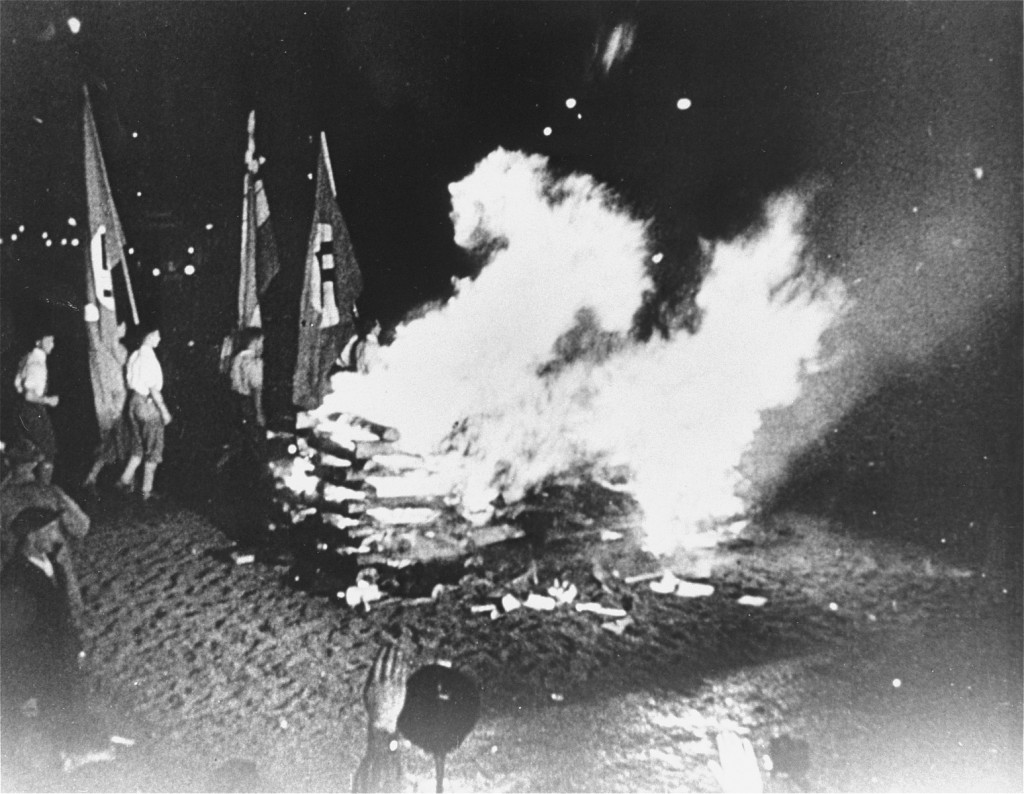
Leon Trotsky
In 1933, Nazi students at more than 30 German universities pillaged libraries in search of books they considered to be "un-German." Among the literary and political writings they threw into the flames were the works of Leon Trotsky.
Excerpt
Only a European and then a world federation of socialist republics can be the real arena for a harmonious socialist society.
—"In Defense of October," Leon Trotsky, 1932
Which of Leon Trotsky's Works were Burned?
All works published before May 1933
Who was Leon Trotsky?
Leon Trotsky (1879–1940), born Lev Davidovich Bronstein, became a close associate of Bolshevik leader Vladimir Lenin. Although Trotsky was a bitter opponent of Josef Stalin, whom he considered a corruptor of Marxism, Trotsky's works—like Stalin's—ended up on the students' bonfires in Germany in 1933.
Trotsky was an advocate of a permanent, world revolutionary Communist movement. In Nazi eyes he personified the antisemitic notion of a Jewish-Bolshevik revolutionary threat. Driven out of the Soviet Union by Stalin, Trotsky attacked both Hitler and Stalin from exile in Mexico. In 1940, he was murdered by agents of the Soviet secret service on Stalin's orders.
Critical Thinking Questions
How did the German public react to the book burnings? What were some of the reactions outside of Germany?
Why do oppressive regimes promote or support censorship and book burning? How might this be a warning sign of mass atrocity?

